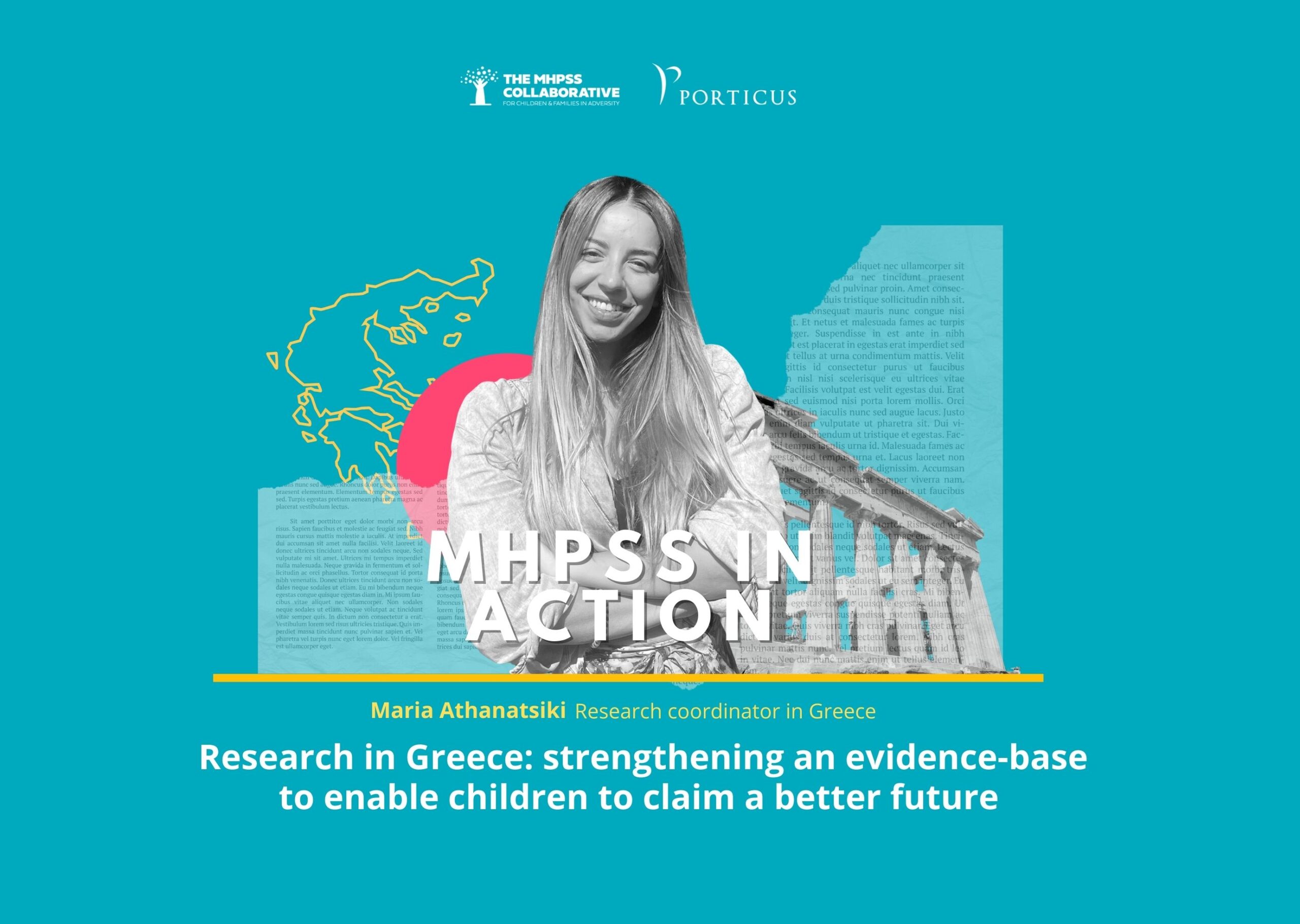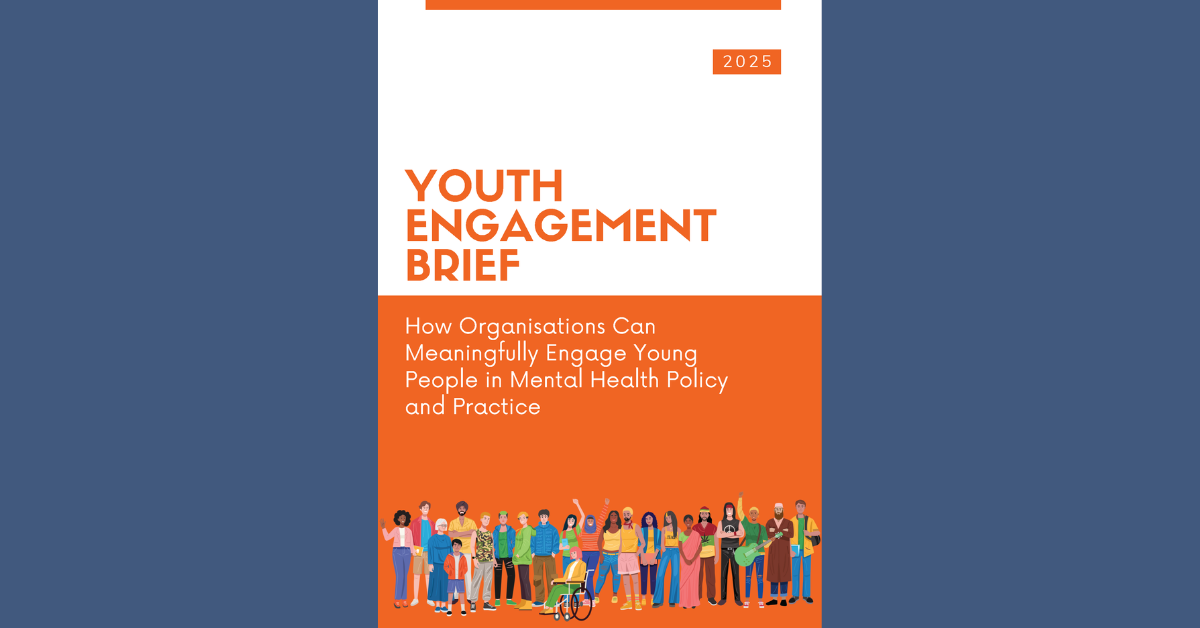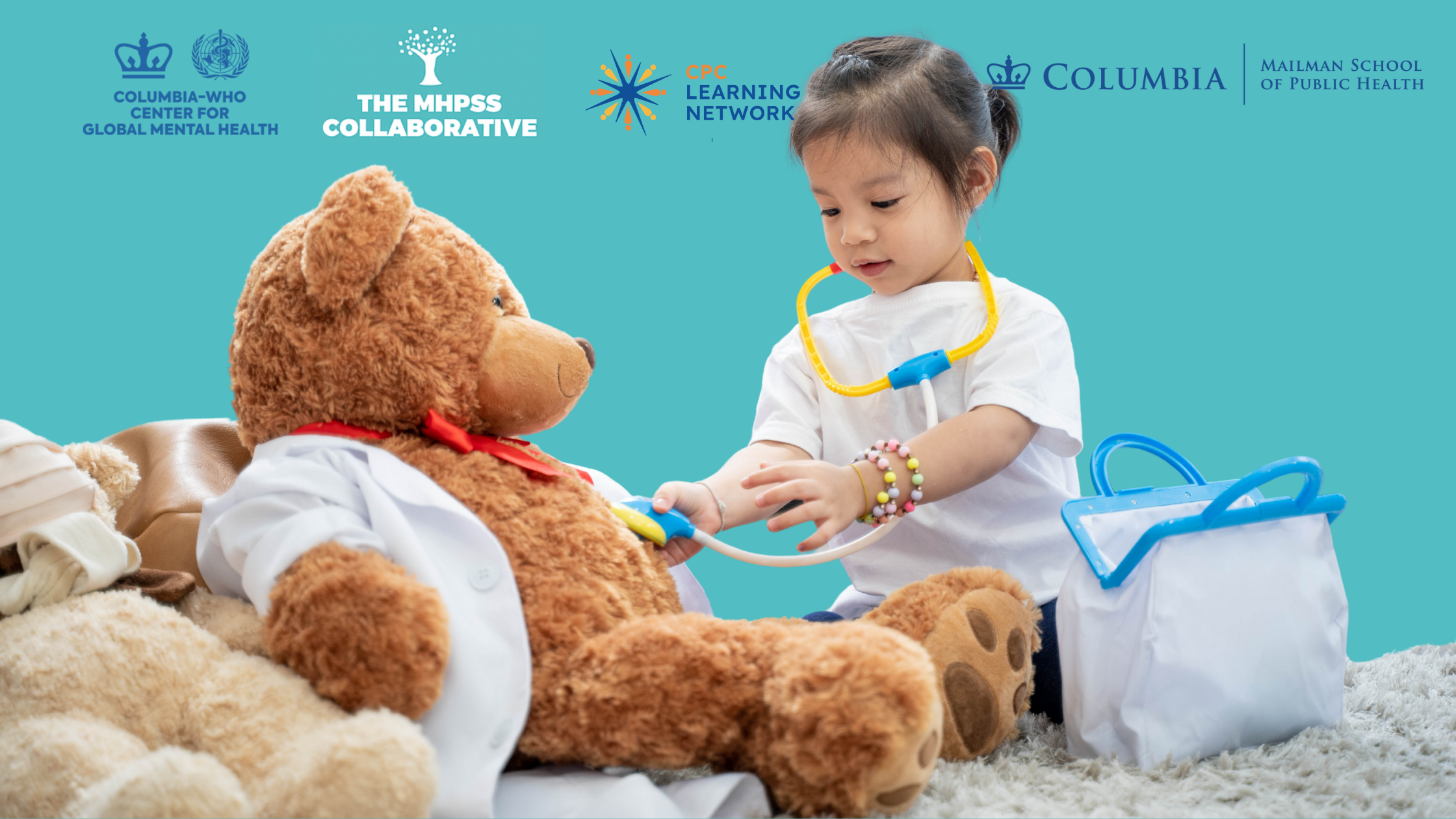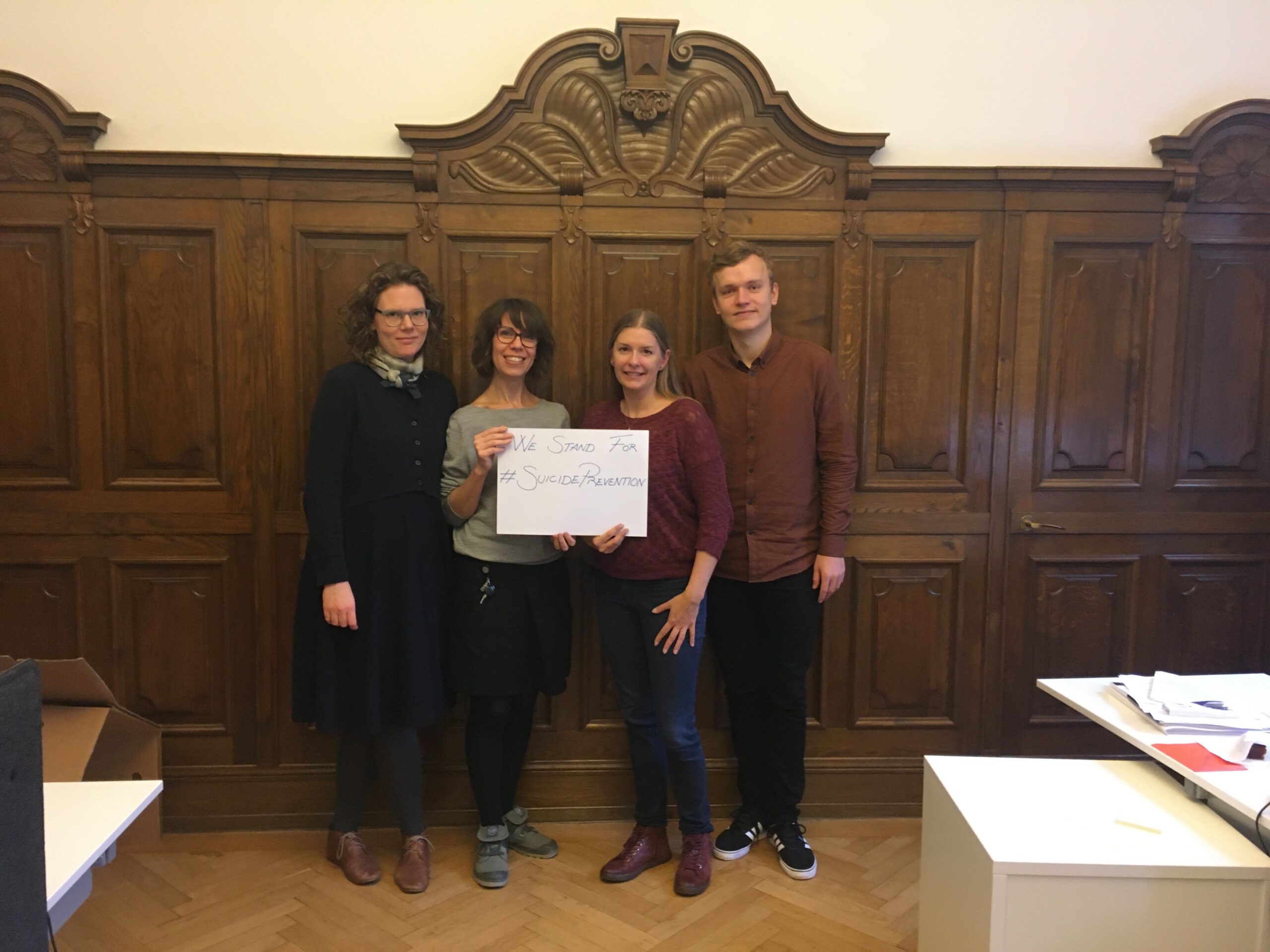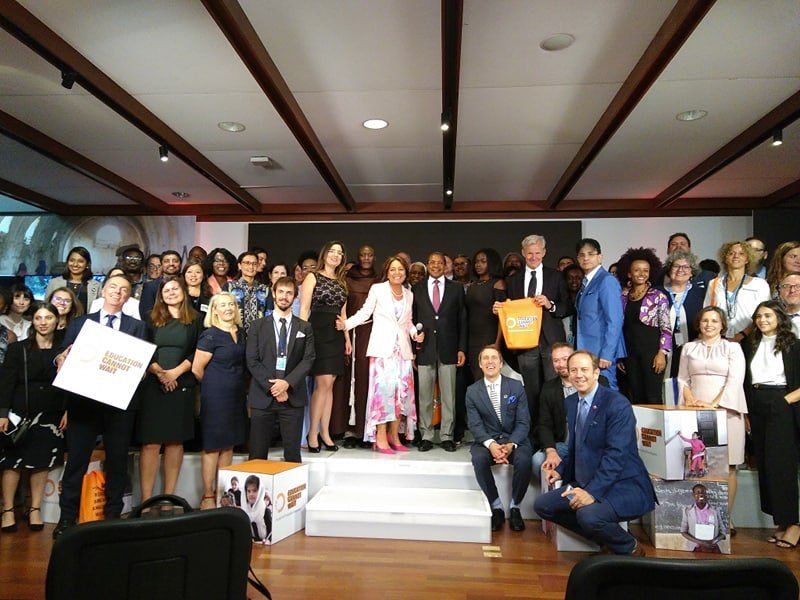
A moment to take a step back. A moment of reflection. Three intensive months of research data collection. Twelve weeks of coordination, communication and sensitive discussions with adults and children to collect their experiences, knowledge and perspectives and reach the research objective: understand the enabling environments of mental health and psychosocial support interventions (MHPSS) in education in emergencies.
In simplified words? How could the international humanitarian community, governments, experts, civil society and local organizations collaborate to design and implement programs that incorporate mental health and psychosocial support into education for children in crisis, with the goal of contributing to a dignified life?
What is next? To progress and transform conversations into data and data into insights and learnings. But before moving – if my personal vision is the alleviation of human suffering and a better, equal, decent life for the oppressed of this world, how do I contribute to that direction through this research work?
Context of study – refugees in Greece
Greece has been a crossroad for migrants, refugees and asylum seekers fleeing war, violence, conflict, fear of persecution and environmental disasters in search of safety for several decades. The high influx in 2015 where more than 1milion people fled conflict or war in the Middle East, Central and South Asia triggered the provision of emergency humanitarian response for the first time inside the European Union.
Asylum seekers and refugees who found themselves in Greece, across the displacement spectrum, from acute crisis, during displacement, in protracted displacement or durable solutions, experience challenges related to harsh living conditions, unmet basic needs, violation of human rights and exposure to severe risks of violence, coercion, exploitation and deliberate deprivation. In a country with rise of hate speech, racism and fascism, refugees, migrants or asylum seekers become victims of violence, hate crime, structural inequalities and systemic discrimination consistently. Children in fragile and humanitarian settings are put at disproportional risk and are faced with lifelong consequences of crisis. With pre-existing social networks and structures disrupted, children struggle to re-establish a sense of stability and normalcy and need support to manage their stressors.
Applying a casual link, if education, as a universal human right, is a key to break the cycle of poverty and a pathway to social equality, and if the integration of MHPSS within education leads to improved well-being and learning outcomes, then this research contributes to the realisation of a wider vision: through the enlargement of an evidence-base, professionals and organisations can make informed decisions and design more effective integrated programming so that children in adversity are empowered to claim a better future.
Study focus – the social and emotional learning programme in Greece
This research takes place in three contexts: Kenya, Greece and Colombia. In Greece, the MHPSS Collaborative has officially partnered with Amal Alliance an independent humanitarian organisation dedicated to empowering displaced and disenfranchised children through education and social development programmes around the globe in both refugee camps and formal school settings. Amal Alliance has created a social and emotional learning (SEL) programme designed specifically for humanitarian settings, that forms the study focus of the research in Greece; the colours of kindness. Six implementing organisations across Greece, formed the main entry point to the targeted population groups in addition to other community actors and stakeholders.
Challenges in data collection
Data collection comes always with its own challenges, on logistical, outreach and coordination layers. However, in this particular context of Greece, the extent of challenges was such that – although daunting at times – made the final results feel even more rewarding. The diversity of the multiple actors targeted as part of the research – with each one of them holding different operation plans, implementation timelines, organisational capacity, internal protocols, procedures and work culture – posed obstacles, thus, intense coordination efforts, tailored engagement approach, a continuous adaptation of methodology, flexibility and adaptability were required from the side of the research team. At the same time, the high number of targeted actors and the large geographical scope of this research that covered locations across the country, including Macedonia, Epirus, Thessaly, Attica and Lesvos, raised operational challenges in terms of actual data collection events that required the use of an hybrid modality.
Who, what and how – the achievements
How do socio-ecological factors influence children’s wellbeing and learning outcomes? What aspects of school, household, family and community environment contribute to an enabling environment? What is the role of education? And what is the impact of social and emotional learning on wellbeing and learning outcomes? How does learning social and emotional skills, such as emotional identification and management, self-awareness, self-management, creativity, relationship building, social awareness and responsible decision making, within school settings, impact children?
A recorder, an online subscription, a phone, a laptop and a car were the basic equipment used to initiate the intensive outreach efforts and conduct qualitative data collection. Coupled with this, Alejandro from Colombia, Tess from Kenya and Jen from USA, provided continuous back-up support. Latest in-country addition, Pafsanias, who teamed-up to play a key role in the upcoming stages of the research project, yet, provided timely invaluable support and gave the – necessary to see through the process – human boost. Invisible constant presence and support in the whole process my 7-year old daughter, that knew how to respect privacy in processes where people were given space to share perspectives shaped often through traumatic experiences.
Following demanding logistics arrangements and unstoppable bilateral communication and coordination on organisation or individual level, the perspectives of 62 individuals from implementing organisations, Macedonia University, University of Aegean and Ministry of Education were captured through interviews (KIIs) or group discussions (FGDs); learners, teachers, caregivers, education officials, management and administration staff, psychologists, social scientists, social workers, Refugee Education Coordinators, researchers and academic professionals provided patiently and in an eager manner their insights to a continuously adapted set of questions.
Reflections in the actual data collection events
In research, data collection is considered per principle an arduous task – even more so when the concepts navigated around and the research thematic areas constitute sensitive topics, related to traumatic experiences, mental health and wellbeing. Applying the protocols, asking the questions to the interviewees and ensuring you collect as much data as possible through a discussion is an explicit aim. Yet, there are many more considerations cutting across the whole data collection process valued or classified differently by each researcher. For me, during the process, there were some prioritised considerations, perspectives or lenses I kept applying myself:
How am I responsibly prepared as a researcher to raise questions that are potentially related to traumatic experiences and can trigger emotional distress? “What are some of the biggest challenges for your child as a refugee in Greece?” Sounds like a straightforward question but how challenging can it be to pose such a question to a father that fled war to provide a better life to his children and currently lives in a socio-political context with rise of popular support for the extreme nationalist agendas, racist beliefs and growing anti-refugee sentiment on the top of mass media control that ignites violence against vulnerable groups of society?
Besides, how can I properly respond to disclosures about violent incidents or abuse made by children ensuring they know how to seek for help after we end our discussion? I still revisit these cases to self-reflect on my responses.
How can I balance my approach to ensure I manage to capture the experiences of the targeted people and learn as much as I can from them ensuring I do no more harm by pushing discussions to the limits and how can I make sure I closely monitor answers and body language that show participants feel uncomfortable?
“Do not use emotional language”, a standard guideline to a researcher for facilitating an interview. How can you really restrict any emotional expression when you hear a mother of five children sharing proudly her own story about how she managed to get back on her feet after fleeing her country? How can you remain emotionally neutral?
Then, what happens with the researcher own’s emotions and personal reflections that emerge during the data collection process? I heard many stories about the challenges, risks and struggles faced by conflict and displacement affected people who managed to physically survive the war and journey but still struggle to survive and restore their lives while concurrent human rights violation incidents against displaced people dominated the Greek news during this research data collection – among others, around 700 people seeking for a safe country were drown in the beginning of the data collection near Pilos in Greece, one of the biggest shipwrecks in Mediterranean sea; violations of international laws by illegal pushbacks kept being continuously reported; racism-motivated crimes become more and more often. Self-reflections and concerns about our profoundly unequal societies have been processed in parallel and are looking for their own space to be grieved, aired and capitalised.
My name is Maria Athanatsiki and I am the research coordinator in Greece. I am honoured to be trusted living experiences and perspectives by people to whom I am only a stranger and these are my reflections before I delve into the analysis of all I was honourably shared.
